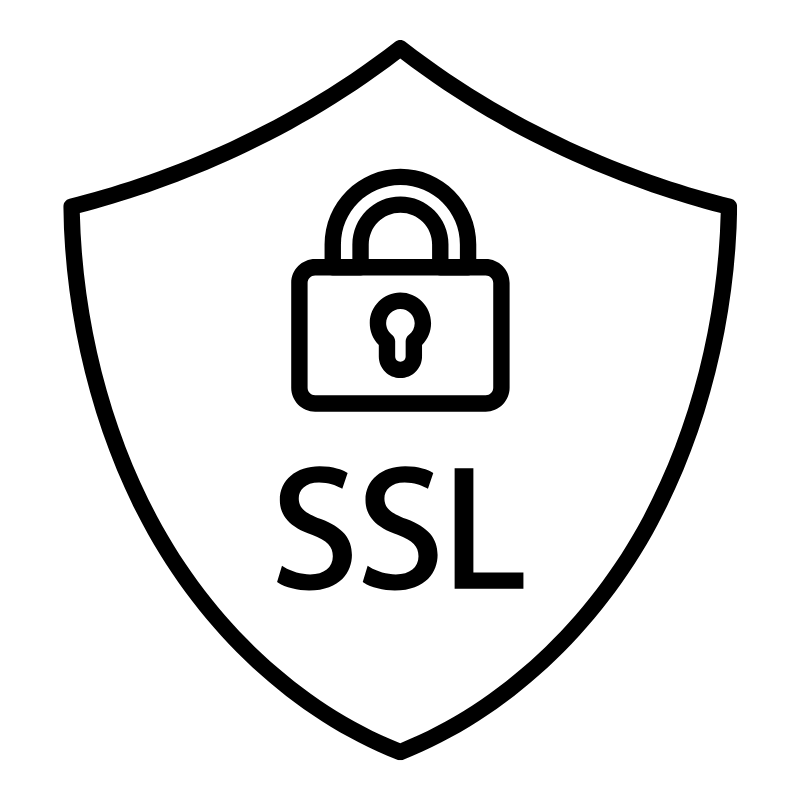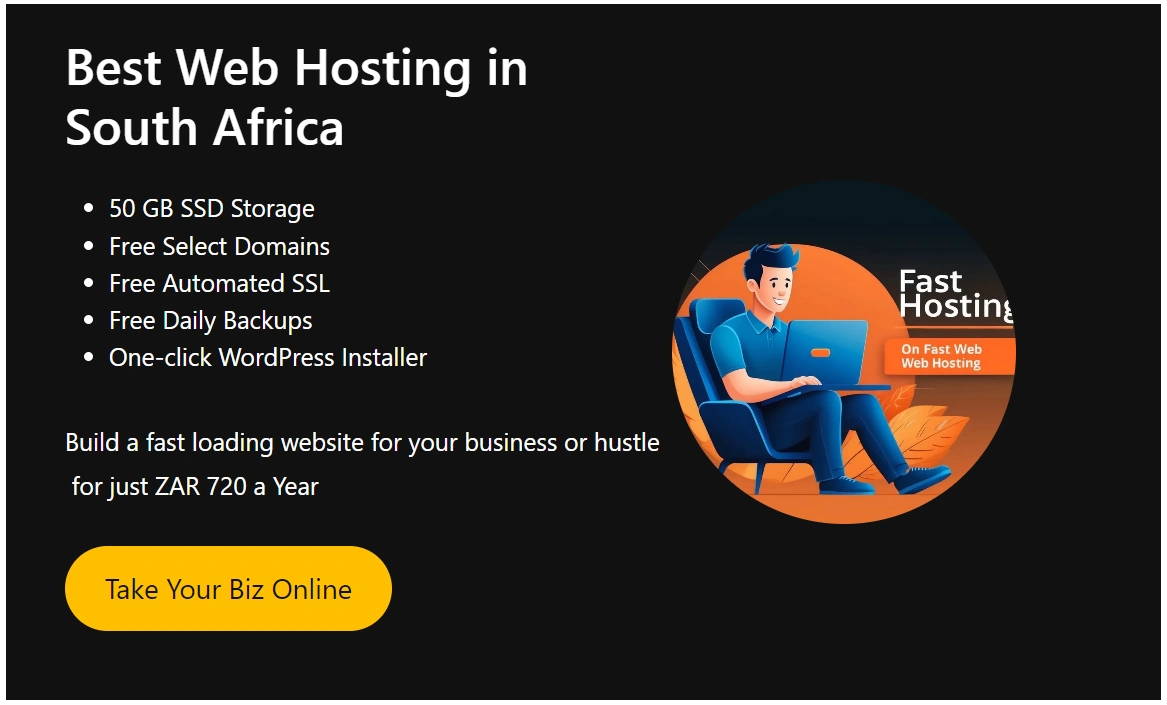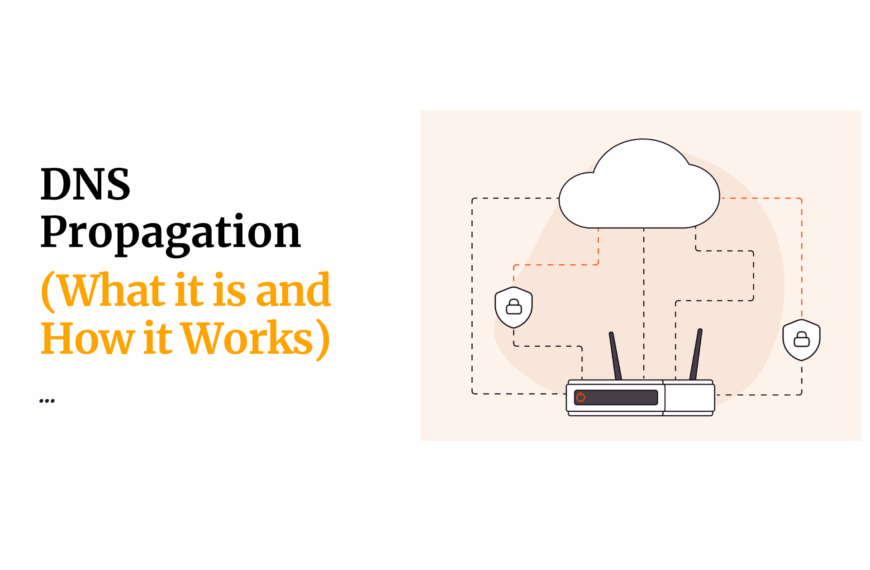If you’ve come across or are trying to compare anycast DNS vs. unicast DNS for your website, you’ve just opened the right read.
Every website owner should grasp what these terms mean and how they influence traffic flow.
The distinctions at play here can, quite literally, elevate or sabotage your online presence.
Put simply, the Domain Name System functions as the internet’s directory, linking your domain name/address (like yourbusiness.co.za) to the servers that actually deliver your content.
Yet, the underlying architecture that delivers those lookups can vary dramatically.
This article unpacks anycast DNS and unicast DNS side by side so you can judge which architecture offers the performance that matches your global ambitions.
For a local business hoping to attract visitors from as far as Europe or Asia, the right DNS can shave critical seconds off load times.
The ideal DNS makes domain registration and ongoing management so frictionless that your website hums along without surprises.
Join us as we break down anycast vs. unicast DNS so you can pin down the option that will keep your online presence zipping along.
Table of Contents
What is DNS and Why Does It Matter?
Before we get into the comparison for Anycast vs. Unicast DNS, let’s first clarify what DNS actually does, stripped of jargon.
You could say that DNS, or Domain Name System, is the behind-the-scenes technology that converts the web address you type into your browser, like www.yourbusiness.co.za, into a numeric address, such as 192.168.1.1, that computers understand.
Imagine it as the internet’s address book, redirecting internet traffic straight to your digital front door.
So why should you care about it?
A well-optimized DNS service brings several key advantages:
1. Faster site loading: The quicker the DNS response, the sooner users see your pages.
2. Better overall experience: Consistency matters; a reliable DNS keeps frustration to a minimum.
3. SEO boosts: Search engines favor snappy, dependable sites, nudging your rank higher.
4. Global performance: A resilient DNS makes your site equally dependable, no matter where your visitors are.
In South Africa, where connection speeds can fluctuate and international sales are on the rise, selecting the right DNS is non-negotiable.
Whether you run a boutique in the Cape or a global e-commerce platform, DNS choices ripple through your sales.
When you register a domain through Truehost, you gain straightforward tools to manage DNS without the hassle.
Now, let’s examine Anycast and Unicast DNS side by side.
Understanding Anycast DNS
So, what is Anycast DNS?
Imagine you’re sending a letter, and instead of mailing it to one post office, it automatically goes to the nearest one for faster delivery.
Anycast DNS works similarly.
It uses a single IP address shared by multiple servers around the world. In other words, it stores your website’s DNS records on multiple servers known as points of presence, or PoPs, using one IP address
When someone visits your website, their DNS query is routed to the closest or fastest server based on their location.
Here’s how Anycast DNS benefits your website:
- Speed: By directing users to the nearest server, Anycast reduces the time it takes to resolve DNS queries. For example, a customer in Durban gets a response from a nearby server, while someone in London is routed to a European server.
- Reliability: If one server goes down, others can take over, keeping your website accessible.
- Scalability: Anycast handles high traffic well, making it ideal for growing businesses.
- Global performance: Perfect for South African companies targeting international markets.
However, Anycast DNS can be more complex to set up and may cost more than traditional options.
For businesses looking to expand globally, though, it’s a game-changer.
With Truehost’s domain hosting, you can leverage Anycast DNS to ensure your website performs at its best, no matter where your customers are.
When comparing Anycast DNS vs. Unicast DNS, Anycast shines for its speed and reliability, but let’s take a closer look at Unicast to understand the full picture.
Understanding Unicast DNS
Unicast DNS is the traditional approach to DNS.
Unlike Anycast, where multiple servers share one IP address, Unicast DNS assigns a unique IP address to a single server.
When someone visits your website, their DNS query goes to that specific server, no matter where they are in the world.
Therefore, in the event of a breakdown or simply if the server is too far away geographically, DNS resolution can fail, making your website inaccessible.
By using the Anycast DNS server model, these risks are largely eliminated.
Here’s what Unicast DNS offers:
- Simplicity: It’s straightforward to set up, making it a good choice for smaller websites or businesses with limited technical resources.
- Cost-effective: Unicast is often cheaper because it doesn’t require a network of servers.
- Good for local audiences: If most of your customers are in South Africa, Unicast can work well, especially if your server is nearby.
But Unicast has its downsides:
- Slower for global users: If your server is in Johannesburg and a customer is in Tokyo, they might experience delays.
- Less reliable: If the server fails, your website could go offline.
- Limited scalability: Unicast struggles with high traffic or global audiences.
For South African businesses with a local focus, Unicast DNS might be enough.
But if you’re eyeing international growth, Anycast DNS vs. Unicast DNS becomes a critical decision.
Truehost offers flexible DNS management solutions that let you choose the setup that matches your needs.
Anycast DNS vs. Unicast DNS: A Head-to-Head Comparison
Now that we understand both DNS types, let’s put Anycast DNS vs. Unicast DNS side by side to see which is better for global performance.
Here’s a clear comparison to help you decide:
| Feature | Anycast DNS | Unicast DNS |
| Speed | Fast, routes queries to the nearest server | Slower for users far from the server |
| Reliability | High, multiple servers provide redundancy | Lower, single server is a point of failure |
| Scalability | Excellent for high-traffic, global sites | Limited, better for smaller sites |
| Cost | Higher due to multiple servers | Lower, simpler infrastructure |
| Complexity | More complex to set up | Easier to configure |
| Best for | Global businesses, e-commerce, high traffic | Local businesses, low traffic |
Performance
Anycast DNS is a clear winner for global performance.
By routing users to the nearest server, it cuts down DNS query times, which is crucial for South African businesses targeting customers in Europe, Asia, or the Americas.
Unicast DNS, on the other hand, can be fast enough for local users in Pretoria or Cape Town but lags for international visitors.
Reliability
Anycast’s network of servers means if one goes down, another takes over, ensuring your website stays online.
Unicast relies on a single server, so any failure can lead to downtime—a big risk for businesses that depend on constant availability.
Scalability
Growing your business?
Anycast DNS handles spikes in traffic and global audiences with ease, making it ideal for e-commerce stores or blogs aiming to scale.
Unicast DNS works for smaller sites but struggles under heavy loads.
Cost and Complexity
Unicast DNS is cheaper and easier to set up, which suits startups or local businesses with tight budgets.
Anycast DNS, while more expensive, offers superior performance for businesses investing in long-term growth.
In the Anycast DNS vs. Unicast DNS debate, Anycast is better for global performance, while Unicast fits smaller, local websites.
With Truehost’s domain packages, you can choose the DNS setup that aligns with your goals and get expert support to make it happen.
Why South African Businesses Should Care About DNS Choice
South Africa’s digital economy is booming.
From e-commerce stores in Johannesburg to tech startups in Cape Town, businesses are going online to reach customers locally and globally.
But with varying internet speeds across the country and the need to compete internationally, your DNS choice can set you apart.
Anycast DNS is a powerful tool for South African businesses aiming for global markets.
It ensures your website loads quickly for customers in London, New York, or Lagos, giving you a competitive edge.
For example, an online store using Anycast DNS can reduce cart abandonment by delivering fast load times worldwide.
Even for local audiences, Anycast’s reliability means fewer disruptions, which is critical in areas with unstable internet.
Unicast DNS, while simpler, may work for businesses targeting South African customers only, like a local restaurant or service provider.
But as your business grows, you’ll want a DNS setup that can keep up.
That’s where Truehost comes in.
Their domain and hosting services include advanced DNS options like Anycast, tailored to help South African businesses succeed online.
In the Anycast DNS vs. Unicast DNS comparison, your choice depends on your audience and goals.
Truehost makes it easy to get started with the right DNS for your website, whether you’re local or global.
How to Choose the Right DNS for Your Website
Choosing between Anycast DNS vs. Unicast DNS doesn’t have to be complicated.
Here’s a simple framework to guide South African businesses:
- Know Your Audience:
- If your customers are mostly in South Africa, Unicast DNS might be enough for now.
- Targeting international markets? Anycast DNS is the way to go for faster global performance.
- Consider Your Website’s Goals:
- Running an e-commerce store or a high-traffic blog? Anycast DNS ensures speed and reliability.
- Managing a small, local site like a portfolio or blog? Unicast DNS is simpler and budget-friendly.
- Evaluate Your Budget:
- Anycast DNS costs more but offers long-term value for growing businesses.
- Unicast DNS is cheaper, ideal for startups or small businesses with limited resources.
- Assess Technical Expertise:
- Anycast DNS may require more setup knowledge, but Truehost’s support team makes it easy.
- Unicast DNS is straightforward, even for beginners.
For example, a South African e-commerce store selling crafts to global customers would benefit from Anycast DNS to ensure fast load times worldwide.
A local coffee shop’s website, however, might stick with Unicast DNS to keep things simple.
Conclusion
In the battle of Anycast DNS vs. Unicast DNS, the best choice depends on your business goals.
Anycast DNS is the champion for global performance, offering speed, reliability, and scalability for South African businesses targeting international markets.
Unicast DNS, while simpler and cheaper, suits smaller websites with a local focus.
Both have their place, but choosing the right one can transform your website’s user experience and SEO rankings.
Truehost is committed to helping you succeed online, locally and globally.
Their domain registration and DNS management services make it easy to choose the right DNS setup.
Don’t let slow DNS hold your business back—take control of your website’s performance today.
 Web Hosting
Web Hosting Windows HostingBuilt for Windows apps and websites – stability, speed and flexibility
Windows HostingBuilt for Windows apps and websites – stability, speed and flexibility Reseller HostingLaunch a hosting business without technical skills or expensive infrastructure
Reseller HostingLaunch a hosting business without technical skills or expensive infrastructure Affiliate ProgramRefer customers and earn commissions from sales across our platform
Affiliate ProgramRefer customers and earn commissions from sales across our platform Domain SearchFind and secure a domain name in seconds with our quick lookup tool
Domain SearchFind and secure a domain name in seconds with our quick lookup tool CO ZA Domains
CO ZA Domains All DomainsExplore domain names from over 324 TLDs globally – all in one place
All DomainsExplore domain names from over 324 TLDs globally – all in one place Free Whois Lookup Tool South Africa
Free Whois Lookup Tool South Africa VPS
VPS SSLs
SSLs







